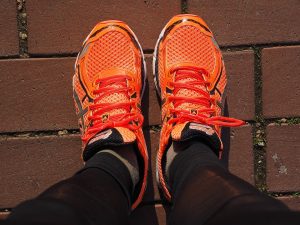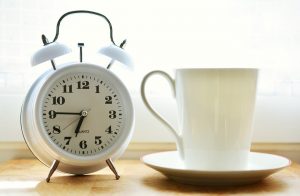So guess what, there is actually a name for the routine you follow every day to go to bed-Sleep Hygiene.
Sleep Hygiene is not just a fancy name for what you have been doing all your life. It is actually a science and adhering to its guidelines could improve the quality of your life and health dramatically.
If you are into fitness you must already be aware of the sleep/exercise correlation. But the time and intensity of physical exertion is just as important and not getting these two elements right will disrupt an otherwise healthful equation.
So let’s figure out how much this area of our lives affects our sleep?
A poll conducted by the National Sleep Foundation (USA) in 2013 revealed a few shocking results,

Here are the top five results from the poll:
-
- Exercisers helps you sleep better. People who exercise report experiencing better sleep. Three-fourths of exercisers say their sleep quality is very good, compared to just one-half of those who do not exercise.
- Vigorous exercisers improves sleep quality. Although experts want you to avoid vigorous exercise just before bed, those who do indulge in physically taxing routines report they sleep better than those who don’t.
- Non-exercisers are less alert during the day. Nearly one-fourth of non-exercisers feel sleepy and lethargic during the day. Almost 44{317a7769e272dec17b69bda26c6a5a4c5e6799efcd8a85f72cb552b76862c2b9} of non-exercisers were at a moderate risk for sleep apnea, as compared to 26{317a7769e272dec17b69bda26c6a5a4c5e6799efcd8a85f72cb552b76862c2b9} of light exercisers and 19{317a7769e272dec17b69bda26c6a5a4c5e6799efcd8a85f72cb552b76862c2b9} of vigorous exercisers.
- Staying Active is associated with better sleep and health. People who spent more time on their feet and stayed active during the day, reported “very good” sleep quality.
- Exercising during the day appears to be good for sleep. Sleep hygienist suggest avoiding vigorous exercises close to bedtime to experience better sleep.
How Exercise Affects Sleep
When done right, exercise can help you fall asleep faster and stay asleep longer. Many factors influence the impact exercise will have on your quality of sleep. These include the length of time between your workout and bedtime, food and drink consumed during the day, your fitness level, and the duration of your exercise.
Training increases your quality of sleep by fostering deep, restorative sleep. Deep sleep boosts your immune system and cardiac health and reduces stress and anxiety.
Exercising outdoors is even better for you because it allows your body to get natural sunlight, and this reinforces your sleep-wake cycle. In the long run, regular vigorous exercise can decrease your chance of developing certain mood disorders and sleep disorders, such as insomnia, sleep apnea, and restless leg syndrome.

A recent study found adults who exercise at least 150 minutes per week are less drowsy throughout the day and report having a 65{317a7769e272dec17b69bda26c6a5a4c5e6799efcd8a85f72cb552b76862c2b9} improvement in their quality of sleep at night.
Best Time to Exercise to Enhance Sleep Hygiene
In sleep hygiene recommendations, intensive exercising close to bedtime or within the last 3 hours before bedtime is not recommended. A test was conducted to better understand this scenario and people who exercised and those who don’t were included in a test by measuring polysomnographic, actigraphic and subjective sleep quality, as well as cardiac activity.

Eleven subjects were selected for this test (seven men, four women). Physically fit young adults were watched closely in a sleep laboratory in a counterbalanced order: (1) after vigorous late-night exercise; and (2) after a control day without exercise. The proportion of non-rapid eye movement sleep was greater in those who exercise than those who don’t. Although no differences were found in heart rate (HR) variability even during sleeping, the results indicate that vigorous late-night exercise does not disturb sleep quality. However, it may have effects on cardiac autonomic control of heart during the first sleeping hours. Exercise is best suited during the day.
The Best Exercises to Promote Sleep
Cardio, strength training and stretches all are great for restful and deep sleep. However, cardio, is best done in the morning. A quick morning jog is great for lowering blood pressure and prompt deeper sleep cycles at night.
In case of strength training, lifting weights is known for helping people sleep better. Lifting weights will help you exert yourself in the morning, and get drowsy earlier in the evening and fall asleep sooner. Doing the same in the evening can help you stay asleep throughout the night.

Stretching before bedtime helps activate the parasympathetic nervous system which is responsible for the bodies “rest and digest” functions. Stretching also helps relax your body and unwind before bedtime.
Overview of Exercise and Sleep
So incorporate at least 30 minutes of physical activity into your day to reap the benefits of overall health. If you want to take up exercising to improve your sleep, then stick to a schedule. Your body naturally wants to sleep and wake at the same time every day. Keeping a regular schedule will keep your circadian rhythm balanced. Being healthy, active, and well-rested helps alleviate your mood as well and reduce stress.
Photo Credit: Jess Foami





